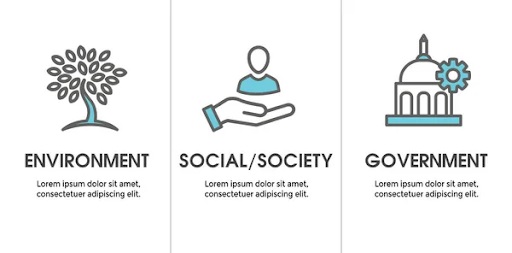Environmental, Social, and Governance (ESG) standards have emerged as a crucial framework for evaluating the sustainability and ethical impact of businesses and investments. These standards provide a comprehensive set of criteria that go beyond traditional financial metrics, considering the broader impact of an organization on the environment, society, and its governance practices.
The adoption of ESG standards reflects a growing recognition that sustainable and socially responsible business practices are not only ethically imperative but also contribute to long-term financial success. Investors, consumers, and other stakeholders are placing greater emphasis on companies that demonstrate a commitment to ESG principles. As a result, businesses are integrating ESG standards considerations into their strategies, operations, and reporting to meet the evolving expectations of a socially conscious global community.
The Benefits of Using ESG Standards
The adoption of Environmental, Social, and Governance (ESG) standards offers a range of benefits for companies, investors, and society at large. Here are key advantages associated with incorporating ESG principles into business practices:
Risk Mitigation:
Companies that adhere to ESG standards are better equipped to identify and manage environmental and social risks. This includes mitigating potential regulatory fines, reputational damage, and operational disruptions related to issues such as climate change, human rights violations, and supply chain controversies.
Enhanced Financial Performance:
Research suggests a positive correlation between strong ESG performance and financial returns. Companies that prioritize sustainability, ethical practices, and good governance often attract long-term investors and enjoy improved access to capital. ESG considerations can be indicative of effective management and operational efficiency.
Access to Capital and Investment Opportunities:
Many institutional investors and funds incorporate ESG criteria into their investment decisions. Companies with robust ESG practices may find it easier to attract capital and investment, as more investors align their portfolios with sustainable and socially responsible initiatives.
Improved Stakeholder Relations:
Embracing ESG standards can strengthen relationships with various stakeholders, including customers, employees, suppliers, and local communities. Demonstrating a commitment to environmental and social responsibility can enhance brand reputation, foster customer loyalty, and attract top talent.
Innovation and Efficiency:
Integrating ESG principles often drives innovation as companies seek more sustainable and efficient business practices. This can lead to cost savings, increased operational resilience, and a competitive advantage in markets that are increasingly valuing sustainable solutions.
Regulatory Compliance:
As governments and regulatory bodies worldwide place greater emphasis on sustainable and ethical business practices, adhering to ESG standards helps companies stay in compliance with evolving regulations. This reduces the risk of legal issues and penalties associated with non-compliance.
Long-Term Value Creation:
ESG standards encourage a long-term perspective in decision-making. By considering the impact of business activities on the environment and society, companies can contribute to the well-being of future generations and create lasting value for shareholders and stakeholders alike.
Resilience in the Face of Global Challenges:
Companies with strong ESG frameworks are better positioned to navigate global challenges such as climate change, social inequality, and geopolitical instability. This resilience is increasingly important as businesses face complex and interconnected risks in a rapidly changing world.

Positive Social Impact:
Embracing social responsibility through ESG standards allows companies to contribute positively to the well-being of communities and society. This can include initiatives related to diversity and inclusion, philanthropy, and community development, fostering a positive corporate image.
ESG standards provide a holistic framework that goes beyond financial metrics, offering a roadmap for businesses to operate sustainably, ethically, and in a manner that aligns with the values and expectations of stakeholders. The benefits extend beyond immediate financial gains to encompass long-term value creation and positive contributions to society and the environment.



